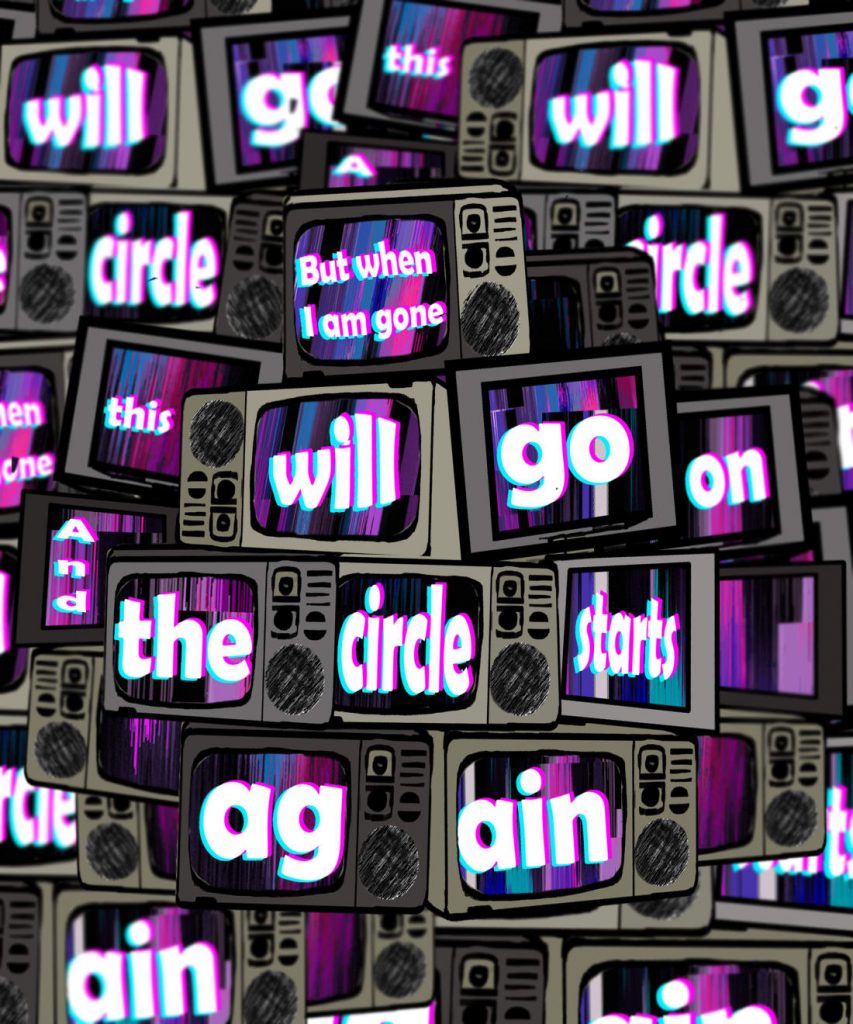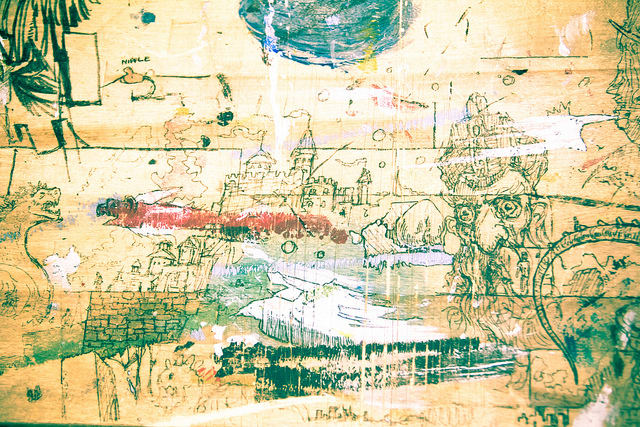The label is also not the surface, nor the entity, nor [insert appropriate term].
Here’s another map-territory relationship that I’ve been thinking about: Labels and objects. The function of a label is to set expectations. It tells you how you’re supposed to think about whatever underlying thing it has been applied to.
Often this is banal, as with a drawer labeled “forks.” There is no need to devote mental processing power to the full complexity of each multi-pronged implement.
Labels on humans deserve more scrutiny.
Personally, I’ve always been a sucker for categorizing myself. Myers-Briggs (I’m a consistent INTJ), the political compass (I wander around the lower middle), etc. I know that aside from the Big Five, these designation systems don’t mean much. But they’re fun! And comforting, because I can feel like I’ve situated myself relative to other people.
Labels become unwieldy when you fluctuate between multiple categories or when you would need a Venn diagram to properly lay out your position. Think of the hyphenated Ethnicity-or-Country-of-Origin-American — manageable, but awkward.
For a while I described myself as a “cynical optimist” (yes, this coincided with my arguing-about-religion phase). It was cheesy, but I was trying to encapsulate the blend of sardonic and sunny that I wanted to project.
Now I have a hard time summing up my political views. Left-libertarian? Neoliberal? Socially liberal, fiscally conservative, but jkjk I’m only fiscally conservative in a selective way? It’s harder now than it used to be, since I’ve learned to be far more uncertain about any given policy choice. (Generally speaking, I believe in markets and competition, but the implementation details are hard to work out.)
Paul Graham wrote in 2009:
I think what religion and politics have in common is that they become part of people’s identity, and people can never have a fruitful argument about something that’s part of their identity [because disagreement feels like a personal attack]. By definition they’re partisan. […] If people can’t think clearly about anything that has become part of their identity, then all other things being equal, the best plan is to let as few things into your identity as possible.
Graham concluded, “The more labels you have for yourself, the dumber they make you.”
What I like most about Graham’s framing is that it puts you in charge of your identity. Your identity isn’t something that happens to you, imposed by the rest of the world, but something that wells up out of you and is displayed to the world. It’s your job to filter and shape it.
My friend Way Spurr-Chen wrote wrote a lovely, encouraging essay two years ago about the process of identity self-management:
If you think about integrating a new sense of self as simply moving from one place towards another place, it seems less daunting. You can always go back to where you were before (and I don’t know about you, but I reverse my improvements all the time). Instead of being a daunting undertaking, you can turn your identity goals into a sort of play. Why not explore (metaphorically and literally) different parts of your potential? Why not see how you regard yourself when you have certain identity traits?
Circling back to labels: They have a tendency to stay stuck. You might end up adding spoons to your fork drawer but never switching out the label for a new one that says “silverware.” And then guests get confused looking for spoons.
Is it necessary to label yourself? Probably not, if you’re the sort of person who can mentally avoid it. (I’m not.) Other people will continue categorizing you regardless — there’s no escaping that. I suppose thoughtful, self-applied labels can be a kind of defensive maneuver.
Originally posted on Substack.


